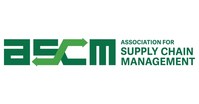The tool analyzes key trends to support resilient and confident supply chains
The Association for Supply Chain Management (ASCM) and KPMG LLP announced the launch of a new monthly Supply Chain Stability Index that provides indicators we view as helpful in assessing how well the U.S. supply chain deals with the ups and downs of market volatility. The index is supplemented by an inaugural report issued today which concludes that in the past two years, the level of stress in supply chains has more than doubled thanks to a steady stream of disruptions, risks, and regulatory requirements and that this increased frequency of disruptions will persist.
Read More: Igroup CAMS Extends Its AWS Cloud Partner Status
The Supply Chain Stability Index uses machine learning and statistical models fueled by market-level supply chain data to provide insights into performance variability and project an outlook for the near-term. Moving forward, the index will be refreshed with indicators of stability for U.S. supply chains on a periodic basis providing organizations with a perspective on how industries perform in the midst of volatility and considerations for assessing areas of their supply chain that are adequately resilient and those that require more stabilization.
“Crisis mode has become the new normal,” said ASCM CEO Abe Eshkenazi, CSCP, CPA, CAE. “What we’re seeing is that ongoing market volatility continues to impair supply chain performance. Which is why there is a need to not only improve service, cost and inventory, but to stabilize it. And when it comes to creating resilient supply chains, one thing we do know — and have confirmed with the index — is that talent makes the difference. If we’re going to solve this, we need the right people.”
Read More: SalesTechStar Interview With Neal Hansch, CEO & Managing Partner At Silicon Foundry
The report identifies three key drivers of supply-chain stress:
- Logistics: Logistics is the predominant cause of stress in the supply chain, accounting for 78% of variability, followed by capacity (10%) and supply (12%).
- Transport: Freight cost has become a top driver of customer service levels, increasing its strength to affect fill rate by more than 100%.
- Workforce: Difficulty in hiring has added to supply-chain stress. Supply chain success depends on highly skilled logistics and manufacturing professionals, wielding data and digital tools to mitigate supply constraints and adapt to volatile consumer demands.
“The increased risks and disruptions in recent years, as well as the changes in regulatory requirements, have generated unprecedented volatilities in the supply chain,” said Brian Higgins, Partner, U.S. Customer & Operations Practice Leader, Commercial Industries, KPMG LLP. “To visualize the much-needed stability and provide data-driven insights on the behavior of supply chains, KPMG and ASCM developed the Supply Chain Stability Index. This index will assess the stability of U.S. supply chains on a periodic basis and serve as a barometer for the greater supply chain.”
The algorithms used to create the index are underpinned by 14 years of data representing nearly 30 variables and key performance indicators (KPIs) that describe end-to-end performance of supply chains across the U.S. The three major factors measured that determine the primary causes of variance include logistics, capacity and supply.
“When it comes to supply chains, there’s no crystal ball — but this index will come close by illuminating stresses and using data to measure volatility drivers, so that supply chain professionals can make more informed decisions on where they need to focus their efforts to increase resilience,” said ASCM Executive Vice President of Strategy and Alliances Douglas Kent, who is also one of the lead authors of the launch report.






















